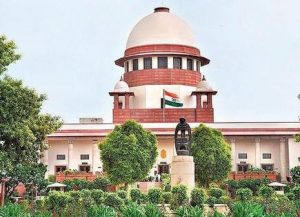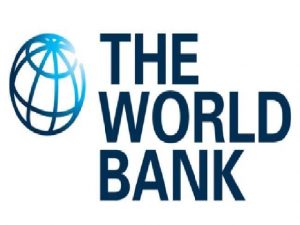Today Current Affairs: 16th October 2021 for UPSC IAS exams, State PSC exams, SSC CGL, State SSC, RRB, Railways, Banking Exam & IBPS, etc
Table of Contents
NASA’s Perseverance Rover: Update

The first scientific analysis of images taken by NASA’s Perseverance rover has now confirmed that Mars’ Jezero crater — which today is a dry, wind-eroded depression — was once a quiet lake, fed steadily by a small river some 3.7 billion years ago.
- The images also reveal evidence that the crater endured flash floods. This flooding was energetic enough to sweep up large boulders from tens of miles upstream and deposit them into the lakebed, where the massive rocks lie today.
About Perseverance Rover:
- It was launched in 2020 aboard a United Launch Alliance Atlas V.
- On February 18, 2021, the Perseverance rover landed on the floor of Jezero crater.
- It carried a unique instrument, MOXIE or Mars Oxygen ISRU Experiment: which for the first time manufactured molecular oxygen on Mars using carbon dioxide from the carbon-dioxide-rich atmosphere (ISRU means In Situ Resource Utilization: or the use of local resources to meet human needs or requirements of the spacecraft).
- It carried Ingenuity, the first ever helicopter to fly on Mars.
- It is the planned first step to bring back rock samples from Mars for analysis in sophisticated laboratories on Earth: with the goal of looking for biosignatures: or signatures of present or past life.
Unlawful Activities (Prevention) Act:

Former Supreme Court judge Rohinton F Nariman, who quashed Section 66A of the Information Technology Act in 2015 for having the “chilling effect” on the right to freedom of speech, has called the Unlawful Activities (Prevention) Act a “draconian legislation” that requires to be scrutinised by the apex court.
- He has urged the top court to strike down Section 124A of the Indian Penal Code which criminalises sedition and offensive parts of the Unlawful Activities (Prevention) Act, 1967 (UAPA).
About the Unlawful Activities (Prevention) Act:
- Passed in 1967, the law aims at effective prevention of unlawful activities associations in India.
- The Act assigns absolute power to the central government, by way of which if the Centre deems an activity as unlawful then it may, by way of an Official Gazette, declare it so.
- It has death penalty and life imprisonment as highest punishments.
- Under UAPA, both Indian and foreign nationals can be charged.
- It will be applicable to the offenders in the same manner, even if crime is committed on a foreign land, outside India.
- Under the UAPA, the investigating agency can file a charge sheet in maximum 180 days after the arrests and the duration can be extended further after intimating the court.
As per amendments of 2019:
- The Act empowers the Director General of National Investigation Agency (NIA) to grant approval of seizure or attachment of property when the case is investigated by the said agency.
- The Act empowers the officers of the NIA, of the rank of Inspector or above, to investigate cases of terrorism in addition to those conducted by the DSP or ACP or above rank officer in the state.
- It also included the provision of designating an individual as a terrorist.
- In June 2021, delivering a judgment defining the contours of the otherwise “vague” Section 15 of the Unlawful Activities (Prevention) Act, 1967, (UAPA), the Delhi High Court laid down some important principles upon the imposition of Section 15, 17 & 18 of the Act.
Sections 15, 17 and 18 of UAPA:
- S. 15 engrafts the offence of ‘terrorist act’.
- S. 17 lays-down the punishment for raising funds for committing a terrorist act.
- S. 18 engrafts the offence of ‘punishment for conspiracy etc. to commit a terrorist act or any act preparatory to commit a terrorist act’.
UN Human Rights Council:

India has been re-elected to the UN Human Rights Council (2022-24) for a record 6th term with an overwhelming majority and vowed to continue to work for the promotion and protection of Human Rights through “Samman, Samvad and Sahyog.”
- India’s current term was set to end on December 31 2021.
- The UN General Assembly elected by secret ballot Argentina, Benin, Cameroon, Eritrea, Finland, Gambia, Honduras, India, Kazakhstan, Lithuania, Luxembourg, Malaysia, Montenegro, Paraguay, Qatar, Somalia, UAE and the US.
- The United States, which had quit the council in 2018 under the previous Donald Trump’s regime, was re-elected to the global rights body for a period of three-and-a-half years.
- UN Human Rights Council is an inter-governmental body within the United Nations system which consists of 47 Member States elected directly and individually by secret ballot by the majority of the members of the General Assembly.
- The members of the Council shall serve for a period of three years and shall not be eligible for immediate re-election after two consecutive terms.
- The membership is based on equitable geographical distribution, and seats are distributed among regional groups Group of African States (13), Group of Asia-Pacific States (13), Group of Eastern European States (6), Group of Latin American and Caribbean States (8) and Group of Western European and other States (7).
Production Linked Incentive (PLI) Scheme For Telecom And Networking Products:

Department of Telecommunications (DoT), Ministry of Communications launched Production Linked Incentive (PLI) Scheme for Telecom and Networking Products.
- PLI Scheme in telecom sector will help in reducing India’s dependence on other countries for import of telecom and networking products.
- The PLI Scheme is being launched by DoT with the objective to boost domestic manufacturing in the telecom and networking products by incentivising incremental investments and turnover with total outlay of ₹ 12,195 crore.
- The scheme is effective from 1st April, 2021. Investment made by successful applicants in India from 1st April, 2021 onwards and up to FY 2024-25 shall be eligible, subject to qualifying incremental annual thresholds.
- The support under the Scheme shall be provided for a period of five (5) years, i.e. from FY 2021-22 to FY 2025-26.
- As per Scheme and Scheme Guidelines, a total of 31 companies, comprising of 16 MSMEs and 15 Non-MSMEs (8 Domestic and 7 Global companies) have been found eligible and are being given approval under Production linked Incentive (PLI) Scheme of Department of Telecommunications (DoT), Ministry of Communications.
- As per commitments given by applicants, these 31 applicants are expected to invest ₹ 3345 crore in the next 4 years and generate incremental employment of more than 40,000 people with expected an incremental production of around ₹ 1.82 Lakh Crore over the scheme period.
- The scheme is expected to boost domestic Research & Development of new products on which 15% of the committed investment could be invested.
Mega Consortium On One Health:

The Department of Biotechnology (DBT), Ministry of Science and Technology, GoI, supported a mega consortium on ‘One Health’ and launched the First ‘One Health’ project of DBT.
- This programme envisages carrying out surveillance of important bacterial, viral and parasitic infections of zoonotic as well as transboundary pathogens in India, including the North-eastern part of the country.
- Use of existing diagnostic tests and the development of additional methodologies when required are mandated for the surveillance and for understanding the spread of emerging diseases.
- This Consortium, consisting of 27 organisations led by DBT-National Institute of Animal Biotechnology, Hyderabad, is one of the biggest one health programs launched by Govt of India in post-COVID times.
- The One health consortium consists of AIIMS, Delhi, AIIMS Jodhpur, IVRI, Bareily, GADVASU, Ludhiana, TANUVAS, Chennai, MAFSU, Nagpur, Assam agricultural and veterinary university and many more ICAR, ICMR centres and wild life agencies.
Guidelines For Central Bank Digital Currencies:

G7 finance leaders have laid out guidelines for central bank digital currencies.
- Any digital currency issued by a central bank must “support and do no harm” to the bank’s ability to fulfil its mandate on monetary and financial stability, and must also meet rigorous standards.
- Currencies must be issued in a way that do not infringe upon the central banks’ mandates, and meet rigorous standards of privacy, transparency and accountability for protection of user data.
- Any central bank digital currency (CBDC) should be grounded in long-standing public commitments to transparency, rule of law and sound economic governance.
- A Central Bank Digital Currency (CBDC), or national digital currency, is simply the digital form of a country’s fiat currency. Instead of printing paper currency or minting coins, the central bank issues electronic tokens. This token value is backed by the full faith and credit of the government.
- ‘Fit-for-purpose’ money used for social benefits and other targeted payments in a country. For such cases, the central bank can pay intended beneficiaries pre-programmed CBDC, which could be accepted only for a specific purpose.
- CBDCs could be used for faster cross-border remittance payments. International collaboration among the major economies of the world, including India, could help create the necessary infrastructure and arrangements for CBDC transfer and conversion.
- Payment instruments could be made available for payment transactions to be made via CBDC. Furthermore, universal access attributes of a CBDC could also include an offline payment functionality.
- Instant lending to micro, small, and medium enterprises (MSMEs) in India can be possible with the help of CBDC.
World Bank Doing Business Report:

The World Bank, in mid-September, announced that it was set to discontinue publishing its Doing Business report.
- This announcement came on the back of an independent investigation that, reportedly, found “data irregularities” that prevailed in the 2018 and 2020 reports.
- In August 2020, World Bank paused the publication of Doing Business reports following a number of irregularities were reported regarding changes to the data.
- The irregularities in Doing Business reports had affected four countries: China; Saudi Arabia; United Arab Emirates; and Azerbaijan.
- A probe of data irregularities cited “undue pressure” by top bank officials, including then-Chief Executive Kristalina Georgieva, to boost China’s ranking in 2017.
- This raised ethical matters involving former bank staff and board officials.
- The World Bank’s annual report matters to several nations, especially developing ones, since it greatly influenced investor decisions by releasing a ranking of economies based on how easy it is to open up, and operate, a business. But while the report was hugely popular among investors, it was heavily criticized by many governments for its methodology that, leaders said, inaccurately captured the realities on the ground.
Fertilizers:

The Cabinet Committee on Economic Affairs (CCEA) has approved that the increased prices of Phosphatic and Potassic (P&K) fertilizers
- The increased international prices of Diammonium phosphate (DAP) have been absorbed by the Union Government.
- The Union Government has decided to increase the subsidy by Rs. 438 per bag of DAP as a special onetime package so that farmers can get DAP at the same price.
- The increased international prices of raw materials for production of three most consumed NPK grades (10:26:26, 20:20:0:13 and 12:32:16) have been absorbed by the Union Government by increasing subsidy by Rs. 100 per bag on these NPK grades as a special onetime package so that farmers can get these fertilizers at affordable prices.
- The Union Government has brought Potash Derived from Molasses (PDM) under Nutrient Based Subsidy (NBS) scheme for the first time since its inception in 2010 to give a push to its manufacturing by Sugar Mills as a byproduct. This Fertilizer is known as PDM-0:0:14.5:0.
- This move is expected to reduce India’s dependence on 100% import of more than 42 LMT of Mineral based Potash i.e. MOP which cost around Rs. 7,160 crores annually.
- This decision will not only improve the income level of sugarcane growers and sugar mills but also offer Rs. 73 subsidy per 50 kg bag being sold @ Rs 600-800 by Fertilizer Companies to farmers.
- It is expected that the Union Government will spend Rs. 156 crores (approx.) annually as subsidy on PDM and save a foreign exchange of Rs. 562 crores.




